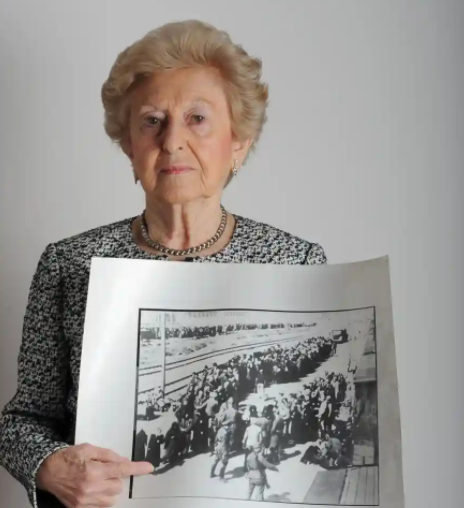Today is a day of remembrance—a day in which we commemorate the Jewish people who entered the concentration and extermination camps, but could not survive to see the liberation. Today we remember the survivors, who lived to see another day, yet who underwent a psychological metamorphosis in dealing with the aftermath of the war. Today we commemorate the individuals who survived—returning to see their homes occupied and their community in crumbles—yet forced to somehow overcome the brutality, depravity, inequity, and mass-killings they witnessed, and live. Today we commemorate those who survived and looked onward, living for those who did not have the chance to do so. Today we do not only commemorate a statistic; Today we commemorate the individual: a person with a family, a mind, a stolen future, and a heart—a heart that was unable to continue beating.
Imagine your family spent generations financially struggling and trying to maintain some semblance of stability to be told that all would be taken from you, but one suitcase. This is what happened to Irene Fogel Weiss. Irene describes how her mother strategically packed her suitcase: the source of their survival during the Holocaust. Their minds automatically altered to focus on nothing but survival. She describes how she and her family were unaware of such a place as Auschwitz. Little did they know or allow themselves to believe that they were not merely victims of discrimination, but rather a part of a carefully orchestrated plan of genocide.
Irene: “We could not have imagined that they would kill little children, until we realized that killing children was their primary goal to prevent any new generations.” Upon their arrival at Auschwitz, Irene and her family tried to maintain some ounce of hope—hope that they may survive the inevitable brutality that awaited them at the end of the train track.
Irene: “At least we’ll see each other occasionally.” But that was not the case. The reason the German system was so successful was because it was fueled by inhumane deception in a world run naively by normal perception. Nobody could possibly have known about his or her own fate.
Irene: “Thinking we were going to a work camp. Thinking that you were going to take a shower when in fact you were going to the gas chambers – that was the ultimate deceit.”
Irene: “Our family was torn apart on the platform on arriving.” Irene’s sister was sent with her mother, while she was taken to the opposite side—the first chance that she had to survive and the last time she would see her family again.
Irene: “[The picture taken] captures me standing alone without my family on the Auschwitz platform, and I’m leaning inwards to see where my little sister has gone.” Following this, Irene had found another picture of her family waiting in line for the gas chamber. Her little brothers, Reuven and Gershon, were shown “dressed in hats, one struggling to put on his winter coat.” “For a long time I failed to find my mother and was very unhappy. But I spent hours looking at these photos with a magnifying glass and one day I found her little face sticking out…The pictures have reassured me that I was not imagining it all, as I sometimes thought I might have done.”
While the Holocaust involved the struggle to survive at the hands of perpetrators, the aftermath of the war involved the struggle to survive at the hands of their own hands: the inevitable suicidal thoughts that took the lives of many. To survive, Irene became distant in every way. She remembered and she understood what she had endured; yet paradoxically she did not. She never cried. She refused to believe what had happened had befallen on earth: “It was a system of masters and slaves, gods and subhumans and I thought to myself: ‘No one knows about it. It’s the forest, surrounded by multiple layers of fence, it’s not actually real.’” She never allowed herself to feel the loss of her parents and explained that those who were incapable of being distant subjected themselves to suicide. Irene never forgot the feeling of how unreliable humanity is and vows that she will never again be fooled by a superficial civilization.
Irene: “This is my last chance to make sure this tragedy is not forgotten.”
When many speak of the Holocaust they speak of a mere statistic as if it has more weight than the personal story and knowledge of an individual. Irene is more than a ubiquitous statistic. She is a person who was subjected to the brutalities of the Holocaust at a young age and had to endure such brutality and confusion without knowing why. She had to endure separation. She had to endure loss. She had to witness death. She had to learn to survive. She had to do this all without knowing why she had to do so. Many believe that the battle ended with liberation, but the survivors are never free. They are never able to forget. To commemorate the lives of those lost and the lives of those who lived, we must never forget. We must never forget because they never can.

